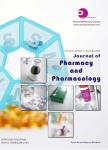Meclizine Chloridrate and Methyl-β-Cyclodextrin Associated with Monophosphoester Synthetic Phosphoethanolamine Modulating Proliferative Potential in Triple-Negative Breast Cancer Cells
作者机构:Molecular Biology LaboratoryButantan InstituteSao PauloSPBrazil
出 版 物:《Journal of Pharmacy and Pharmacology》 (药剂与药理学(英文版))
年 卷 期:2019年第7卷第7期
页 面:408-420页
学科分类:1002[医学-临床医学] 100213[医学-耳鼻咽喉科学] 10[医学]
主 题:Human triple-negative breast cancer MDA-MB-231 synthetic phosphoethanolamine meclizine chloridrate methyl-β-cyclodextrin cell cycle
摘 要:Synthetic phosphoethanolamine(Pho-s)is a monophosphoester ester with anti-inflammatory and pro-apoptotic *** chloridrate(MC)is a histamine H1 receptor blocker that is also able to inhibit cellular ***,MC does not inhibit cellular respiration in isolated mitochondria such as antimycin and ***-β-cyclodextrin(MβCD)belongs to theβ-cyclodextrin family,which is capable of removing cholesterol from the plasma *** aim of this study was to evaluate the proliferative effects of meclizine chloridrate and methyl-β-cyclodextrin compounds associated with synthetic phosphoethanolamine in a triple-negative human breast tumor line,MDA-MB-231 Cell viability of the tumor line and normal cells FN1 was evaluated by MTT colorimetric test;the production of free radicals was determined by lipoperoxidation(LPO)test;and the percentage of cell cycle phases and proliferative index was evaluated by flow *** viability demonstrated a significant decrease with the treatments of MβCD,MC and Pho-s associated with *** production of free radicals decreases significantly in all *** addition,a significant increase of DNA fragment and decrease in G0/G1 cell cycle phase were observed in cellular percentage with concentrations of 20 and 30 mM of Pho-s in association with MC and MβCD,respectively.



